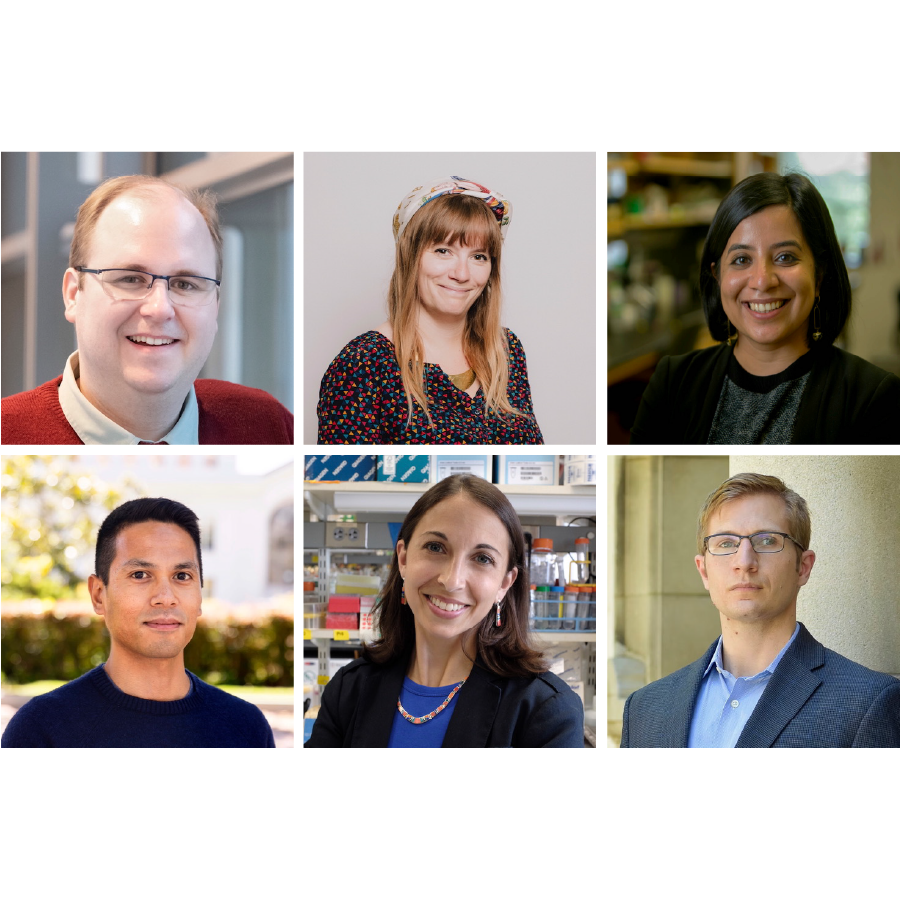
2025 Vallee Scholars Appointed
The Vallee Foundation is proud to announce the appointment of six new Vallee Scholars as it celebrates its thirteenth year of providing unrestricted support to national and international early-career researchers at a pivotal stage of their tenure-track careers. Since 2013, the Foundation has invested more than $20 million to empower 65 exceptional young scientists worldwide. We warmly welcome these outstanding researchers into the Vallee community and eagerly anticipate the groundbreaking discoveries they will pursue.
David LV Bauer, DPhil
The Francis Crick Institute
Understanding the molecular basis of RNA virus recombination.
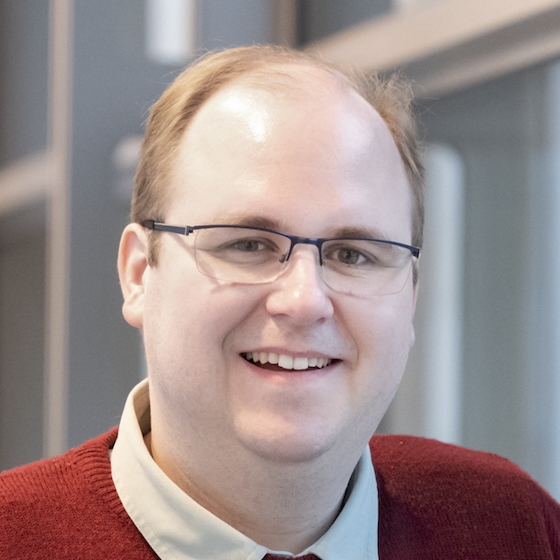 David LV Bauer is a virologist with an interdisciplinary background in bioinformatics, molecular biology, and biophysics. David joined the Francis Crick Institute in London as a Group Leader in 2020, where he heads the RNA Virus Replication Laboratory. His group is interested broadly in RNA viruses: how they replicate and cause disease; how immunity develops and in turn influences viral replication; and how the unique properties of RNA itself contributes to these processes. David’s group explores these processes both in vitro at the atomic and cellular levels, and in vivo with animal models and human populations as part of the Crick/UCLH Legacy Study and the West Africa, West Indies, West London Consortium.
David LV Bauer is a virologist with an interdisciplinary background in bioinformatics, molecular biology, and biophysics. David joined the Francis Crick Institute in London as a Group Leader in 2020, where he heads the RNA Virus Replication Laboratory. His group is interested broadly in RNA viruses: how they replicate and cause disease; how immunity develops and in turn influences viral replication; and how the unique properties of RNA itself contributes to these processes. David’s group explores these processes both in vitro at the atomic and cellular levels, and in vivo with animal models and human populations as part of the Crick/UCLH Legacy Study and the West Africa, West Indies, West London Consortium.
Before joining the Crick, David completed his undergraduate degree in chemistry at the City College of New York as part of the Macaulay Honors College. He then moved to the UK and received a DPhil in Clinical Medicine from the University of Oxford in 2014, where he studied as a Rhodes Scholar. Following a US NSF Postdoctoral Research Fellowship with Achilles Kapanidis in biophysics, he moved to the Dunn School of Pathology to carry out research with Ervin Fodor on influenza viruses, while an adjunct fellow at Linacre College, Oxford.
Bauer Lab
Aude Bernheim, PhD
Institut Pasteur
From evolution to innovation: the biomedical potential of ancestral immunity
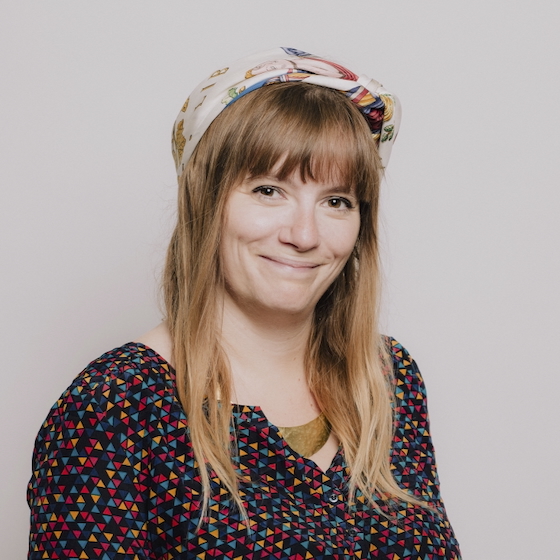 What are the fundamental principles that govern immunity across life? How do immune systems function at the molecular level, evolve, and how can understanding them lead to new therapies? These questions drive Aude Bernheim’s research. With her lab, she studies immunity not only for its biomedical relevance—such as predicting immune targets or discovering new antiviral molecules—but also for its role in ecology and evolution. Her work stems from the recent realization that bacteria possess a far more diverse repertoire of immune mechanisms than previously imagined. This diversity challenges the notion that immunity is organized differently across life forms and instead suggests shared logic between bacterial and eukaryotic immunity. With her team, she aims to systematically chart the diversity and function of these microbial immune systems, uncover their evolutionary links to eukaryotic immunity—and harness them to identify novel immune genes across fungi, plant, algae and humans. This cross-domain perspective, termed ancestral immunity, provides a framework to explore what is conserved, what innovates, and how immunity can be both ancient and adaptable.
What are the fundamental principles that govern immunity across life? How do immune systems function at the molecular level, evolve, and how can understanding them lead to new therapies? These questions drive Aude Bernheim’s research. With her lab, she studies immunity not only for its biomedical relevance—such as predicting immune targets or discovering new antiviral molecules—but also for its role in ecology and evolution. Her work stems from the recent realization that bacteria possess a far more diverse repertoire of immune mechanisms than previously imagined. This diversity challenges the notion that immunity is organized differently across life forms and instead suggests shared logic between bacterial and eukaryotic immunity. With her team, she aims to systematically chart the diversity and function of these microbial immune systems, uncover their evolutionary links to eukaryotic immunity—and harness them to identify novel immune genes across fungi, plant, algae and humans. This cross-domain perspective, termed ancestral immunity, provides a framework to explore what is conserved, what innovates, and how immunity can be both ancient and adaptable.
Aude Bernheim is a group leader at Institut Pasteur, where she heads the Molecular Diversity of Microbes lab. She trained in molecular biology, bioinformatics and public policies in Paris, received her PhD from Institut Pasteur in Paris, France, and completed postdoctoral work with Rotem Sorek at the Weizmann Institute in Israel. Her research combines a wide range of disciplines mixing bioinformatics and experimental approaches including (but not limited to) genomics, phylogenetics, bacterial genetics, phage biology. In addition to her Vallee Scholar Award (2025), she has received Jacques Monod Prize (2020), an ERC Starting Grant (2021), the Rosalind Franklin Award for Young Investigator (2021), the Collège de France Prize (2022), Young Investigator Program from EMBO (2024), the Irene Joliot-Curie Prize (2024), among others. Beyond her research, Aude Bernheim is actively engaged in promoting inclusivity in science through citizen science initiatives, public outreach, and science-policy dialogue. She notably co-authored a book on algorithmic gender bias and serves on the French President’s scientific advisory board.
Akankshi Munjal, PhD
Duke University School of Medicine
Topological transition and the robustness of organ development
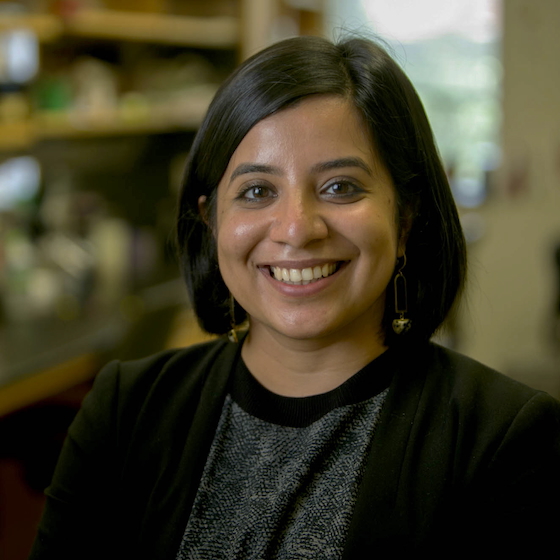 We were all once embryos. A hallmark of successful embryonic development is the ability of organs to form with the correct shape and size, even amidst genetic and environmental variation. Research in the Principles of Tissue Morphogenesis Lab focuses on understanding how this remarkable robustness is achieved. Through quantitative, interdisciplinary, and collaborative approaches, the lab investigates the developmental programs, feedback interactions, and physical constraints that integrate across scales to sculpt functional tissues.
We were all once embryos. A hallmark of successful embryonic development is the ability of organs to form with the correct shape and size, even amidst genetic and environmental variation. Research in the Principles of Tissue Morphogenesis Lab focuses on understanding how this remarkable robustness is achieved. Through quantitative, interdisciplinary, and collaborative approaches, the lab investigates the developmental programs, feedback interactions, and physical constraints that integrate across scales to sculpt functional tissues.
Akankshi Munjal is an Assistant Professor in the Department of Cell Biology at Duke University, where she leads the Principles of Tissue Morphogenesis Lab. Originally from New Delhi, she earned her bachelor’s degree from the University of Delhi and her master’s degree from the National Centre for Biological Sciences in Bangalore, India. She completed her PhD in the lab of Professor Thomas Lecuit at the Institut de Biologie du Développement de Marseille in France. Before joining Duke, Dr. Munjal was a postdoctoral fellow at Harvard Medical School, where she received the HFSP Postdoctoral Fellowship (2016) and the NIH Pathway to Independence Award (2019). Since starting her lab at Duke in 2022, she has been recognized with Duke’s Whitehead Scholar Award (2022) and the NIH Director’s New Innovator Award (2023).
James Nuñez, PhD
University of California, Berkeley
Decoding the epigenomes of neurons with CRISPR
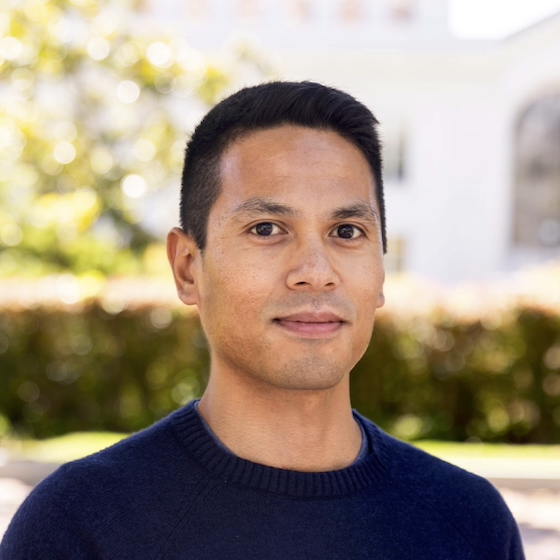 Research in the Nuñez lab centers on epigenetics - chemical modifications on DNA and histones that are critical for regulating gene expression. A particular focus is DNA methylation, the most abundant epigenetic modification in humans that is highly altered in disease and throughout aging. Using a combination of functional genomics, CRISPR genome and epigenome editing, and stem cell models of neuronal differentiation, they aim to unlock how DNA methylation is established on the human genome, why neurons encode unique DNA methylation patterns, and why misregulation of DNA methylation is associated with disease. In parallel, the Nuñez lab innovates CRISPR-based epigenetic editing technologies for use in fundamental research and as potential therapeutic modalities.
Research in the Nuñez lab centers on epigenetics - chemical modifications on DNA and histones that are critical for regulating gene expression. A particular focus is DNA methylation, the most abundant epigenetic modification in humans that is highly altered in disease and throughout aging. Using a combination of functional genomics, CRISPR genome and epigenome editing, and stem cell models of neuronal differentiation, they aim to unlock how DNA methylation is established on the human genome, why neurons encode unique DNA methylation patterns, and why misregulation of DNA methylation is associated with disease. In parallel, the Nuñez lab innovates CRISPR-based epigenetic editing technologies for use in fundamental research and as potential therapeutic modalities.
James Nuñez is an Assistant Professor in the Department of Molecular and Cell Biology at the University of California, Berkeley and an Investigator of the Chan Zuckerberg Biohub San Francisco. James earned his PhD at the University of California, Berkeley with Dr. Jennifer Doudna and completed his postdoctoral training with Dr. Jonathan Weissman at UCSF where he pioneered the CRISPRoff/on technologies for epigenetic editing. James has been recognized as a Hanna Gray Fellow of HHMI, a Pew Biomedical Scholar, and an Alfred P. Sloan Research Fellow.
Elizabeth Polina, PhD
Washington University School of Medicine
Stimulus-dependent genome integrity in nervous system longevity
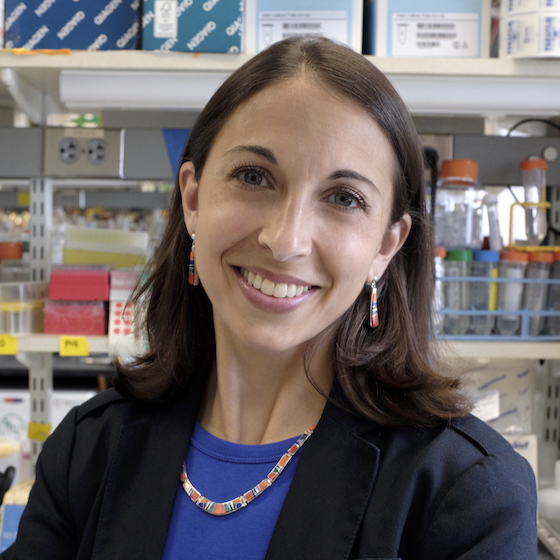 Elizabeth Pollina is a molecular neuroscientist studying the mechanisms that preserve longevity and promote rejuvenation in the nervous system. Accumulating damage to neuronal genomes is an emerging hallmark of brain aging and neurodegeneration. Yet, we lack a fundamental understanding of how our highly specialized neurons repair genomic insults in vivo and how the dynamic stimuli neurons receive across a lifetime further impinge on the genome. The Pollina Lab leverages interdisciplinary tools from neuroscience, epigenetics, and DNA repair to uncover how long-lived cells of the brain protect their genomes in response to diverse physiological cues and its relevance to neurological disease.
Elizabeth Pollina is a molecular neuroscientist studying the mechanisms that preserve longevity and promote rejuvenation in the nervous system. Accumulating damage to neuronal genomes is an emerging hallmark of brain aging and neurodegeneration. Yet, we lack a fundamental understanding of how our highly specialized neurons repair genomic insults in vivo and how the dynamic stimuli neurons receive across a lifetime further impinge on the genome. The Pollina Lab leverages interdisciplinary tools from neuroscience, epigenetics, and DNA repair to uncover how long-lived cells of the brain protect their genomes in response to diverse physiological cues and its relevance to neurological disease.
Dr Pollina is an Assistant Professor in the Department of Developmental Biology at Washington University in St. Louis. Before joining the faculty, she trained in molecular biology as an undergraduate at Princeton University. She went on to earn her PhD in cancer biology with Anne Brunet at Stanford University and completed her postdoctoral training with Michael Greenberg in molecular neurobiology at Harvard Medical School. In addition to the Vallee Scholar award, she has been the recipient of an NIH K99/R00 transition award, a Rita Allen Scholar award, a Klingenstein-Simons Fellowship in Neuroscience, the Pershing Square MIND (Maximizing Innovation in Neuroscience Discovery) prize, and a Chan-Zuckerberg Initiative Collaborative Pairs in Neurodegeneration award.
Daniel Semlow, PhD
California Institute of Technology
Mechanisms of Transcription-Replication Conflict Resolution
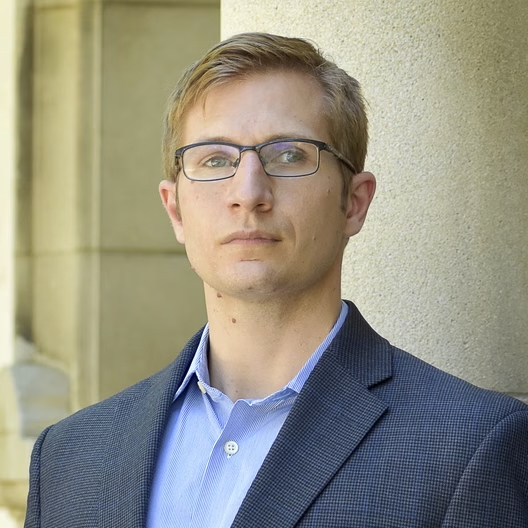 DNA carries the instructions that a cell uses to function and survive. Each time a human cell divides, it needs to rapidly and accurately replicate over 6 billion bases-pairs of genetic code. This process is challenged frequently by DNA damage and conflicts with other cellular processes. Disruption of replication is a major source of genome instability and contributes to cancer and ageing. Research in the Semlow lab focuses on uncovering the mechanisms that allow cells to tolerate and resolve challenges to DNA replication. By combining genetic and chemical biology approaches with a powerful cell-free extract system that faithfully models vertebrate replication, the lab investigates the biochemical pathways that overcome replication stress. The ultimate goal of this work is to identify therapeutic strategies that either suppress diseases caused by DNA repair deficiencies or enhance the sensitivity of cancer cells to chemotherapy.
DNA carries the instructions that a cell uses to function and survive. Each time a human cell divides, it needs to rapidly and accurately replicate over 6 billion bases-pairs of genetic code. This process is challenged frequently by DNA damage and conflicts with other cellular processes. Disruption of replication is a major source of genome instability and contributes to cancer and ageing. Research in the Semlow lab focuses on uncovering the mechanisms that allow cells to tolerate and resolve challenges to DNA replication. By combining genetic and chemical biology approaches with a powerful cell-free extract system that faithfully models vertebrate replication, the lab investigates the biochemical pathways that overcome replication stress. The ultimate goal of this work is to identify therapeutic strategies that either suppress diseases caused by DNA repair deficiencies or enhance the sensitivity of cancer cells to chemotherapy.
Daniel Semlow is an Assistant Professor of Biochemistry at the California Institute of Technology. He received his PhD from The University of Chicago in the lab of Jonathan Staley. Dan completed his postdoctoral training with Johannes Walter at Harvard Medical School. He is the recipient of an NIH Pathway to Independence award.
About the Vallee Scholar Awards
Recognizing that outstanding, young, independent investigators are the source for future advances in the biomedical sciences and of their need for flexible, unrestricted funding to conduct their research, the Vallee Scholars program makes grants of $400,000 – to be spent over a period of four years - to junior faculty carrying out basic biomedical research. This award is available only to investigators who have been nominated by institutions that have been selected by the Vallee Foundation Board of Directors. One nomination will be accepted per institution. The candidate must have received his/her PhD, MD, or other professional degree, within twelve years of the application deadline and, by the same date, have been in an independent research position (tenure track or equivalent) for six years or fewer.
For more information: Contact Alexa M Mason, Executive Director